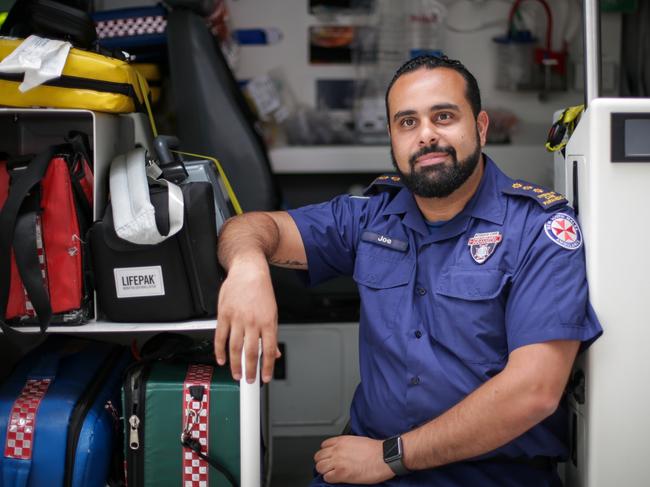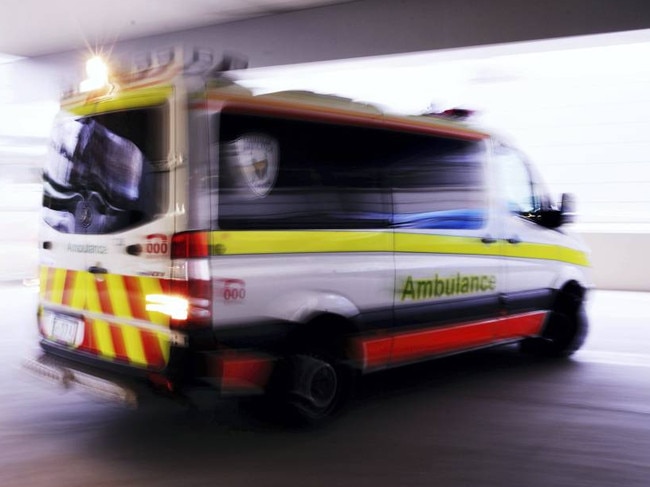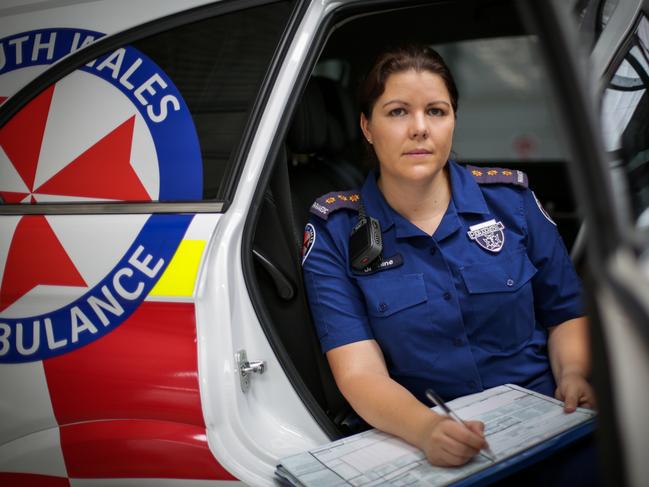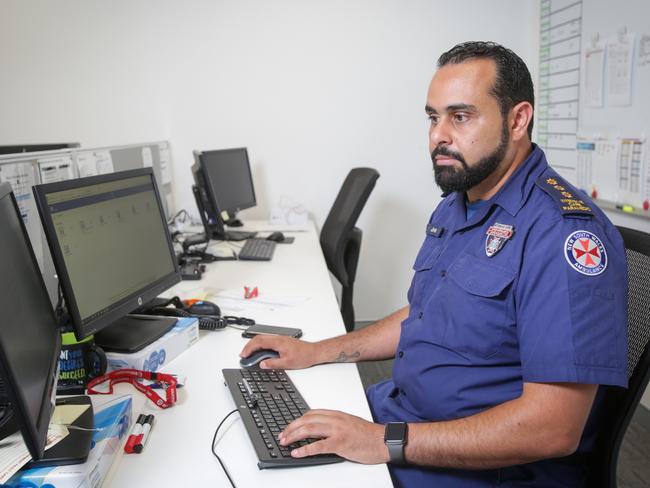Think and Drive: Impact fatal road crashes have on paramedics
Paramedics see the worst of humanity — and the best — and have an important message about safety. Two heroes speak about the impact of fatal road crashes on themselves as well as others.
If you saw what they saw — you’d never speed again. You’d never drink-drive. You’d never get behind the wheel tired, distracted, or pick up your phone.
Because if you saw what NSW paramedics see every single day on our roads, it’s safe to say you’d stop, slow down and think, each and every time you get behind the wheel — because life’s just not worth the risk.
From Christmas Eve last year to January 2 this year, at least 456 crashes were reported to NSW Ambulance. In the same week in 2016/17, some 71 pedestrians were hit by a car.
Whatever the incident, NSW Ambulance officers are there. Paramedics like Joe Ibrahim.
Recently he attended a high-speed collision in Orchard Hills where a car crossed the median strip, hitting another head on.

A 17-year-old, her sister-in-law Katherine Hoang — who was newlywed and pregnant with twins — and another driver, all lost their lives.
“I remember looking into that car and seeing the passengers who had unfortunately lost their lives, and that image will never leave my mind,” Acting Inspector Ibrahim told The Daily Telegraph.
“There are some things you see that you can never un-see.
“But every job you do, every case, you leave a little of you with them and they leave a little with you.
“There are those particular jobs, and they leave a lot more of them with you.”
So far this year, 340 people have been killed on NSW roads — 12 in the first two weeks of December alone.
That’s 340 people who won’t be at the Christmas table with their loved ones this year — devastatingly, their deaths were entirely preventable.
“You don’t want to become a paramedic’s worst nightmare — and the result of things like being tired and drink driving, or taking substances and driving, or driving at high speed, using your phone and being distracted and not driving to road conditions — they are the combination of things that create a paramedic’s worst nightmare,” Ibrahim says.

“The police will then deliver a family a message that their loved one had died as the result of an accident that could have been avoided — and they will be missing from the dinner table at Christmas, and every Christmas after.”
Northmead station Inspector Jennine Kiely has worked as a paramedic for 12 years after being inspired by the hardworking officers in her hometown of Cowra, working hard to increase road safety in regional towns.
“I started when I was young — I was 20 and growing up in a small country town and I used to see local paramedics — it was something I always wanted to do,” she says.
“Every day is different — you never know what you’re going to get and or what’s going to happen, but I like to be able to support people during difficult times, and show empathy and understand what they are going through.
“A lot of it is supporting the family too — and knowing you can make a difference.
“They are calling at their worst — they need your help.”

Kiely says people’s behaviour did change this time of year, with Christmas parties and alcohol-fuelled festivities often enticing an aggressive response from partygoers.
“People have to remember we are just trying to help,” she says.
“We ask people to be mindful of that, and we ask people to help us do that.”
She says their control centre would ring at the start of a shift and advise where their first job was.
“It might be a car accident or a child in cardiac arrest or a shooting,” Kiely says.
“Certainly there are jobs that stay with you, but I’ve got a good support network to deal with whatever happens.
“Recently I attended a gentleman who was hit by a truck, a four-month-old in cardiac arrest and a lady giving birth to a baby in the back of a car — and the only one that ended well was the birth of the baby.
“We get a lot of pedestrians being hit by vehicles, people not using the crossings, especially if they have been on a night out.”
She says that keeping the mind and body active and engaged was essential to dealing with the incidents that did not have happy endings.
She plays soccer, goes to the gym, or debriefs with friends.
“You just never know what the day brings — there is never a day without incident,” she says.
“(Christmas) is always a fairly busy day dealing with motor vehicle accidents because there a lot of people on the road travelling during Christmas.
“Then there are a few incidents of kids with new toys and a lot of elderly people who might be at home by themselves. It’s an honour to do what we do.”
When Ibrahim was in his early 20s, he suffered some personal trauma and the ambulance officers who responded changed his life.
He went into executive management, responsible for 1400 staff before owning mobile phone shops.
Until one day his wife asked him a simple question — the answer of which changed everything.
“I had a career and children and then my wife one day said ‘you’re not all that happy in this career; what would you like to do in life?’ and the answer was ‘be a paramedic’,” he says.
So the 35-year-old studied for seven years, completing a master’s degree in advanced paramedic specialisation. He has now been putting on that paramedic uniform for six years and, despite the daily risk, wouldn’t change a thing.
“There are lots of variables and they are long shifts — at least 12 hours, but if you get a triple-0 call 20 minutes before your shift ends, you could end up working 13 or 14 hours,” Ibrahim says.
“It’s normally four days on, four days off, and you never know what’s going to happen at any moment.”

With sons aged eight and four, he says exposing himself to high risk in emergency situations was still worth it, if it meant he helped save a life.
“Lots of times I’ve felt in danger — we will often be driving at high speeds to try to save someone’s life or pull a child out of the pool and try to resuscitate them, which resonates with you if you’ve got your own kids,” he says.
“We are put in positions where people are unpredictable — sometimes they are aggressive, or drug or alcohol affected, and lash out at us.
“There is absolutely associated risk — am I guaranteed to walk into my house at the end of the day? No, I’m not.”
Stationed at Castle Hill but currently working in Penrith, Ibrahim encouraged people to slow down on the roads, not to drink and drive and to think before they act — or risk deadly consequences.
“Just remember that paramedics are there to help you,” Ibrahim says.
“They are there in your time of need — whether you think so or not, they’ve been called because you’ve needed some assistance. Work with them. Don’t be aggressive, don’t yell and scream — if they feel intimidated at any point, they have been instructed to leave — and they will leave.”

And at the end of the day, it all comes down to one human helping another — and the outcomes can be as hard as they are rewarding.
“It’s looking around and seeing the grief on their family’s faces — the grief that comes with seeing a loved one trapped in a car or being worked on by our paramedics.
“While there is a glimmer of hope, you can see the grief, and they are already mourning that family member,” he says.
“That’s the part that’s more challenging to deal with — you have a job and you get it done — but that’s hard to see.
“I walk out the door not knowing whether the day will bring life into the world, or will be the day we see someone take their last breath.
“But ultimately what keeps us going are our colleagues, and being a paramedic, we are the best thing in someone’s worst day.
“When you save a life, there is no other feeling like it — it is the ultimate reward.”
Every 41 minutes someone is killed or hospitalised from a crash in NSW.
Although the number of people killed so far this year is less than the same time last year, it is still too many.
* The Daily Telegraph has partnered with Transport for NSW to help cut the road toll and encourage drivers to Think and Drive these holidays.


